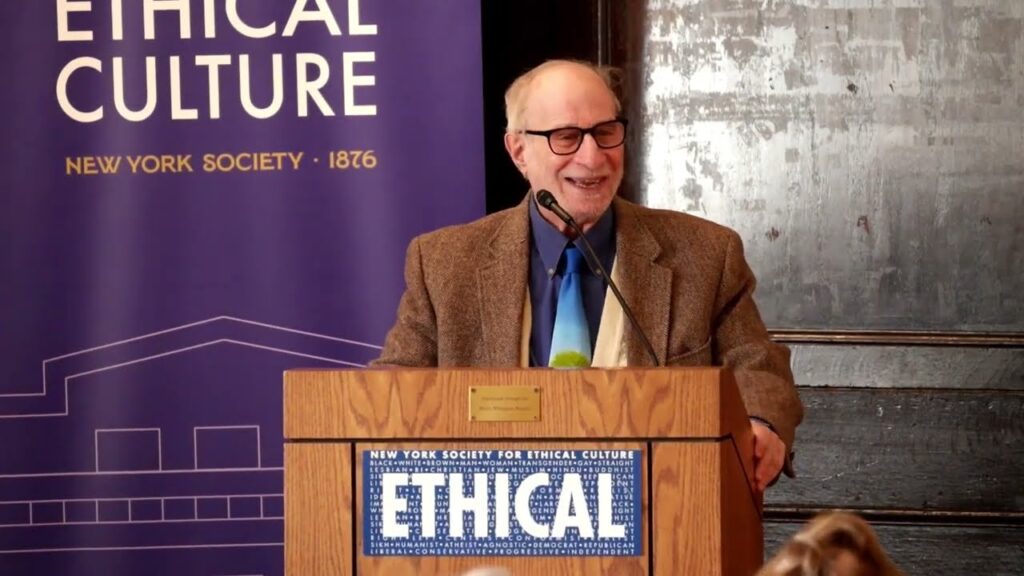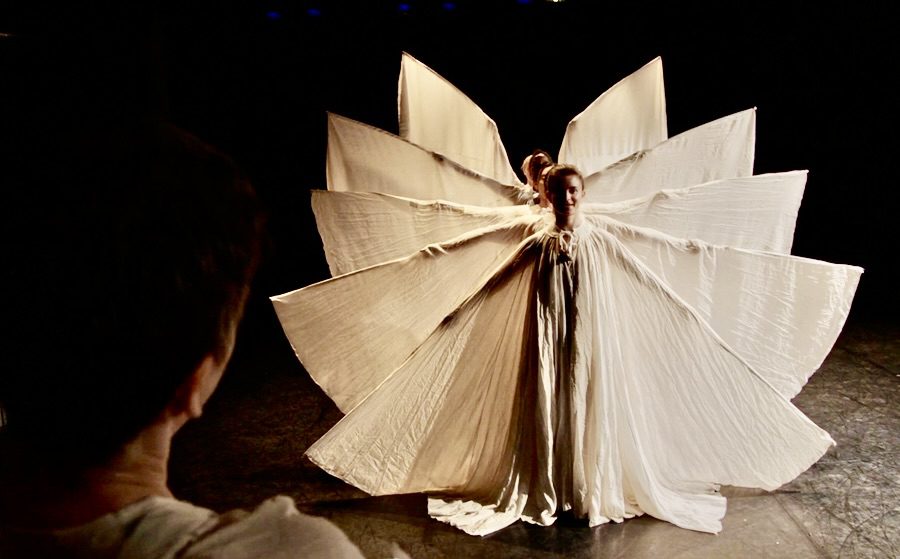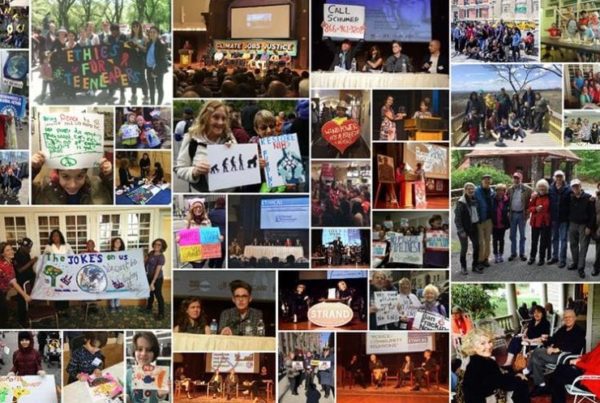

This month’s Ethical Outlook Newsletter is online! Read below to see what the Society and our members have been doing to stay connected while apart.
Contents
At Home | Leader’s Desk w/ Dr. Joe Chuman | A Rough Time for the Kids–And Parents, Too | Take the 2020 Census | Masked Role Models–You’ve Gotta Love ’em! | Mother Nature’s Time Out | A NYC Thank You | Young Ethical Explorers | AEU Update | Our Ethical Family: May Birthdays
At Home (a.k.a. Living in Limbo)
What We’re Watching
Jane’s Walk — Nine years ago, the Municipal Art Society began an annual tradition the first weekend in May hosting Jane’s Walk NYC, a festival of volunteer-led “walking conversations” inspired by urban activist Jane Jacobs. The walk heralds spring, celebrates Jane Jacobs, and explores the city she loved so much. This year the virtual Jane’s Walk NYC (from Home) will be a full week. Via various platforms including Facebook, Twitter, and Instagram, participants will connect in a digital dialogue across all five boroughs using #JanesWalkNYC.
TDF Online — See some wonderful productions at noted theaters across the country—plays such as A Doll’s House, Part 2 and Much Ado About Nothing.
Playbill Post — Check their website to see which shows are streaming daily.
Symphony Space — Different offerings various nights of the week — Selected Shorts, Music (all genres), and more.
Irish Arts Center — Music, visual arts, poetry, and conversation — all free.
The West Wing — Reruns, from the first season to the last, are on Netflix. Guaranteed, those who watch will nominate Aaron Sorkin for President. —Elinore
Brooklyn Botanical Garden – Online!
What We’re Learning
- Insider Insights — Join Met curators for this series in which the various installations will be seen and discussed.
- Drop-In Drawing — Virtual session of The Met’s popular drawing series. Grab a pen or pencil, a sheet of paper, and any straight edge, and get started whenever you’re ready. The half -hour sessions are Fridays at noon.
The Morgan Library Connected — Morgan curators and docents guide you on an up-close virtual exploration and discussion of one of the many works in the institution’s treasured collection. Fridays at 12:30, Wednesdays at 3pm.
The Frick Online — Cocktails with the Curators, Audio Tours, Virtual Tour of the house, Virtual exhibits, Lectures Online, and past exhibitions.
Lincoln Center’s Pop-Up Classroom — Led by some of the world’s best artists and educators, classes covering arts as dance and acoustical music are weekdays at 2pm. Most lessons require materials use simple materials found at home. For you and for the kids!
What We’re Reading
 The Call of Cthulu, H. P. Lovecraft (52pp) —Arthur Rupel
The Call of Cthulu, H. P. Lovecraft (52pp) —Arthur Rupel
Ever hear of the literary genre “weird fiction”? H. P. Lovecraft was acclaimed as “the 20th century master of weird fiction.” He was virtually unknown in his lifetime, published mainly in what were called pulp magazines in the 1920s and 30s, but is now regarded as one of the most significant 20th century authors of supernatural horror fiction. The Call of the Cthulu is a short story, the first in a series that became known as the “Cthulhu Mythos.” Arthur admires Lovecraft for his ability to create atmospheres as intense as those of Edgar Allen Poe, whose writings greatly influenced the author.
 The Way We Live Now, Anthony Trollope (800 pp) —Joe Fashing
The Way We Live Now, Anthony Trollope (800 pp) —Joe Fashing
Trollope was an English novelist in the Victorian era of the late 1800s. Among his best-known works is a series, the Chronicles of Barsetshire. His novels often considered political, social, and gender issues. Joe’s favorite, The Way We Live Now, is Trollope’s longest book, with 100 chapters. Like Dickens’ books, it was first serialized, each chapter published monthly. Inspired by the financial scandals of the early 1870s, Trollope wrote the social satire as a rebuke, dramatizing the effects of the corruption pervading the life of the era. In 2014 The Guardian listed it among the best 100 novels.
 Aesthetics From Classical Greece To The Present, Monroe Beardsley —Maria Solé
Aesthetics From Classical Greece To The Present, Monroe Beardsley —Maria Solé
Before the publication of book, there were three histories of aesthetics in English—Bosanquet’s pioneering work, the second part of Croce’s Aesthetic in the Ainsle translation, and the comprehensive volume by Gilbert and Kuhn. Together they cover a good deal of ground, but none of them is very new, so they don’t consider recent work on many important philosophers and periods of the past or the best concepts and principles developed by present-day philosophy. In Aesthetics from Classical Greece to the Present the author seeks to bring these principles to the forefront in exploring the history of aesthetics.
What We’re Listening To
- Jazz at Lincoln Center — Programs, concerts, and discussions. Classes in jazz include Swing University, Webop, Essentially Ellington, and the Middle School Jazz Academy. Conversations with Wynton Marsalis Monday nights at 9 on Zoom and Facebook Live. Full-length concerts from the archives every Wednesday night at 7, and then available after.
- Irish Arts Center — Poetry, music, and more.
- Marie’s Crisis — This longtime Village piano bar has long been a gathering place for aficionados of and performers in musical theater. Catch some grand show tunes there every night on the Facebook website. There are two “sets” daily, 4-7pm and 7-9:30pm on weekdays, and a little later on Saturday nights. The pianists take requests, so be ready.
What We’re Making
Cross-stitching: “I am trying to depict the beauty of the natural world emerging in spite of the pandemic. Covid has given me the time and inspiration! These are photos of the first four weeks of my freehand cross-stitch, ‘Covid Spring,’ a work-in-progress.” — Carol Portlock
What We’re Cooking
Some of us are re-making favorite, family, recipes and meal combinations. Others are inventing new ones. There’s the comfort kitchen and the creative one. Whatever fills the soul and the tummy!
Judith and Larry Hurt’s Flounder with Bok Choy and Potatoes
 Ingredients:
Ingredients:
-
- Flounder
- Parsley
- Baby potatoes
- Tarragon
- Ginger Root
- Seasoning (your choice)
- Flour
- Butter
- Lemon
- Olive oil
Preparation:
-
- Heat butter in a skillet and sauté the bok choy and thinly-diced ginger root.
- Steam or nuke the baby potatoes until soft-firm.
- Lightly coat the flounder in flour.
- Heat butter and olive oil and cook the flounder for 2 minutes on each side on medium heat.
- Chop the parsley and tarragon and stir in a browned butter sauce (butter that’s melted and turned brown), adding a squirt of lemon juice. Pour this over the flounder and serve with a wedge of lemon.
Marion Burns’ Mock Sesame Noodles
Ingredients:
-
- ½ lb very thin spaghetti
- 1T sesame oil
- 2 T smooth peanut butter
- 1t sugar
- 11/2 T soy sauce
- 1t sriracha
- 1 T rice vinegar
- Grated or powdered ginger
- 1 cucumber
Preparation:
-
- Boil and drain the spaghetti.
- Mix the other ingredients together.
- Add the pasta. Allow to cool.
- Slice the cucumber into short ¼” thick sticks and put on top.
Ellen McBride’s Easy Apple Cake
Ingredients:
-
- 4 apples, peeled, cored, and sliced
- 2 T butter
- 2T sugar
- 1T lemon juice
Batter
-
- ¾ C sugar
- 1 t baking powder
- 1 C flour
- 1/2 C Canola oil
- 2 eggs
- 1 t vanilla
- 2-3 T cinnamon sugar
- Grated lemon rind to taste
Preparation:
-
- Preheat oven to 350º.
- Grease and flour 9″ spring form or regular pan
- Sprinkle apples with lemon juice and toss with sugar
- Heat butter in sauté pan over low heat, add apples and cook till softened (10-15 minutes)
- Combine flour, sugar, eggs, oil, baking flour, and vanilla
- Add half the warm apples and their juice to the batter and mix
- Spread evenly in pan with spatula
- Arrange remaining slices in a decorative pattern, and sprinkle cinnamon sugar over the top
- Bake 1 hour at 350º. Cool completely before removing from pan
Taking Photos (Courtesy of David Vassar)
And Here’s a Challenge: The Community Quilt Project
 The American Folk Art Museum (AFAM) has launched a Community Quilt Project. Signature quilts are typically a collective undertaking with each block created by and/or named for a different member of a community. In the spirit of collaboration, AFAM invites you to create your own squares and add them to a quilt for the project. Click here for more information, and to find out how you can contribute your own quilt square.
The American Folk Art Museum (AFAM) has launched a Community Quilt Project. Signature quilts are typically a collective undertaking with each block created by and/or named for a different member of a community. In the spirit of collaboration, AFAM invites you to create your own squares and add them to a quilt for the project. Click here for more information, and to find out how you can contribute your own quilt square.
And Give Yourself Permission…
…to watch that silly comedy on tv.
…to not read or watch the news.
…to indulge in a bit of chocolate.
 Leader’s Desk: “A Second Bill of Rights”
Leader’s Desk: “A Second Bill of Rights”
By Leader Dr. Joe Chuman
In January,1944, Franklin Roosevelt gave a state of the union address that deserves far greater recognition, indeed recognition that, in my view, is urgent in our times. In what is sometimes referred to as his “the Second Bill of Rights” address, Roosevelt called for a second Bill of Rights that would vouchsafe economic rights.
He noted that the Constitution and Bill of Rights guarantee political rights, but they need to be complemented with a parallel roster of economic entitlements to further ensure that happiness be achievable. Asserting that political rights alone are insufficient, he proclaimed that “necessitous men are not free men.” In short, we need political rights to agitate for economic justice. But without a guaranteed economic standard of living commensurate with human dignity, political freedom means little.
 He listed eight economic entitlements, among them the right to a decent wage, the right to a home, the right to be secure in old age, sickness, disability, and unemployment, the right to a good education, and yes, the right to health care.
He listed eight economic entitlements, among them the right to a decent wage, the right to a home, the right to be secure in old age, sickness, disability, and unemployment, the right to a good education, and yes, the right to health care.
To be sure, Roosevelt was not calling for amending the Constitution, a process which is extraordinarily cumbersome, lengthy, and politically fraught. He was calling for these entitlements to be encoded into and guaranteed by federal law.
History notes that Roosevelt failed to achieve his noble and humane vision. Four years later, however, his widow, Eleanor Roosevelt, as chairperson of the drafting committee of the Universal Declaration of Human Rights, worked to ensure that those economic rights and others found a prominent place in the Declaration.
Let it be said that the states of Western Europe take economic rights very seriously, ensuring that the citizens of those countries are rendered secure by a safety net, again vouchsafed by federal laws and long-standing convention. By contrast, it remains the official position of the United States that economic rights are not rights at all, making the United States an outlier in the developed world. Our security is subject to the vagaries of politics and capitalism. We now see the tragic consequence of our unenlightened social values playing out at this moment in the economic misery caused by the pandemic.
The time is long past that we join the civilized world. And, after the plague has lifted, we need to struggle hard to make it so.
 (Credit: “Postcards From a pandemic” The New Yorker, April 13, 2020)
(Credit: “Postcards From a pandemic” The New Yorker, April 13, 2020)
A Rough Time for The Kids — and Parents Too
This is such a difficult time for children. From the age at which they could socialize, even before pre-school, they’ve been doing that. They’ve had their peers to be with and share the experiences of young life with, be they toddlers or teens. The peer group is everything, and now it’s gone — except for virtual socializing. And they’ve been physically active, whether on the playground or the sport field. Not now. They’ve got the living room.
And then there’s mom and dad, or just one of them, coping with the child or children all day, every day. When is their private time? If they’re lucky enough to have a job that allows working from home, where’s that space and time? (One young mother of two I know is finding her “space” on short breaks in the bathroom!)
Parents of youngsters are trying to have compassion for their children’s restlessness and frustration while simultaneously struggling to calm their own stress and strain. It’s a difficult road to hoe no matter how you look at it. Find what gives you even small periods of relief. Some helpful advice going around for parents trying to find small periods of relief includes:
- Don’t stress out over “unbalanced” meals, yours or the kids’. This might even be a good time to include them in the meal planning and food prep. (Rolling meatballs can be fun!)
- Children are as apt to benefit from meditation/mindfulness as adults. A good place to start is at bedtime with Peace Out, guided meditation for kids on YouTube, whose episodes take one through the various mindfulness techniques including visualization, breathing exercises, and body awareness, and then relate a short bedtime story.
- Teach your kids how to play on their own. Start by playing with them, whatever they choose, for 10 minutes (use a timer), and then they can play whatever they choose on their own for the next 10 minutes with you present (and making encouraging, complimentary comments). The next 10 minutes is on their own while you do a chore and return. Gradually extend the “on their own” time.
The New York Times devoted a special section “Pandemic Parenting,” providing good advice and resources. Parent magazines and many other online sources list activities specific to age and interest.
We’ve culled the information below from several of these to list some things the family can do together and others just the kids:
Daniel Tiger’s Grr-ific Feelings App – Download Here
- A PBS-created app that helps kids identify and explore feelings and emotions through games, songs, and art activities alongside Mr. Rogers’ own Daniel the Tiger. Ages 2-5.
At Home with the Metropolitan Museum of Art – www.metmuseum.org
- Storytime: Recommended for families with children ages 18 months – 6 years, this 10-minute weekly program is every Thursday at noon. Join them to “look, listen, and have fun with picture books. “
- Saturday Sketching: Recommended for ages 11 -18, Saturday afternoons.
Wave Hill – www.wavehill.org
- Depth in Distance: The Family Art Project — Storytelling and art projects. Saturday Mornings at 10.
Symphony Space – www.tdf.org
- Just Kidding — This weekly program now includes Family Friday.
- In a separate program, they’re offering a musical version of The Giving Tree. Tickets are $11.
Around The House
- Build it and They Will Come: Whatever the activity, it’s more fun in a special space—a cabin, rocket ship, pirate ship, fort, schoolroom, bus—built from whatever’s around (sheets and pillows, pots and pans are a good start)
- Mission Possible: Make regular activities into specific “missions” (e.g. Draw three buildings: one long, one tall, and one 3-tiered; play “restaurant” and create the lunch menu; reorganize the bookshelf in order of size, color, genre…whatever). Parents can even incorporate household chores such as sorting and folding the laundry.
- Storytime: Make it up! One person starts the story, and the next one continues it. It can even be the equivalent of a chapter book.
- Chores: You make the list of chores for the day. Your child sets the schedule of when they will be done.
- Just Dance: No prescribed steps or moves. Just some bouncy music and free-form movement.
 Take the 2020 Census Today!
Take the 2020 Census Today!
Your participation in the 2020 Census is so important! As it says at the website, “Your response helps to direct billions of dollars in federal funds to local communities for schools, roads, and other public services. Results from the 2020 Census will be used to determine the number of seats each state has in Congress and your political representation at all levels of government.”
Until the COVID-19 crisis came upon us, those who hadn’t filled out the form in hard copy or online were to wait until receiving the form in the mail with a 12-digit ID number. They could then use that number to fill in and mail the hard copy, or to fill in the application online. Now, however, you don’t have to have that number.
Just go to 2020Census.gov, read the instructions, and click that blue box on the right that says, “Start Questionnaire.” The first thing you’ll see is a request to log in using your 12-digit census ID. Ignore that and click on the line directly below the Log in box: “If you do not have a Census ID, click here.”
Remember, as they caution you, “You must complete your questionnaire once you begin. If you leave the questionnaire and return later, you will have to start over. Do not use the web browser buttons (back, forward, or close browser). Use the buttons within the questionnaire to navigate.”
The questions are easy, and the whole process should take you under 10 minutes.
Visit 2020Census.gov to take the Census now
Masked Role Models — You’ve Gotta Love ‘Em
Eleanor, again!
Remember when Eleanor Roosevelt wore a pink hat for the Women’s March in 2017? Well, now she’s garbed in a red scarf mask. You’re probably familiar with her statue at Riverside Drive and 72nd Street.
Abe too!
Like Eleanor, Abe Lincoln, silent and long gone, sends a message to protect ourselves and one another. You’ll recognize this statue in front of the New York Historical Society.
View the rest at West Side Rag!
 Mother Nature’s Time Out
Mother Nature’s Time Out
by Monica Weiss, Co-Chair, Ethical NYC Environmental Stewardship Committee
As a child, I was occasionally sent to my room for a time-out to reflect on whatever transgression I had committed — having done something thoughtless or selfish or just plain naughty. Although my parents were reasonable and patient, they had their rules and their limits. Before releasing me, they needed some assurance that I understood what I had done and why it was wrong. The message was “These are the rules we live by, and unacceptable behaviors have consequences.”
The laws of nature are like the rules of our parents. Those laws have evolved over 4.5 billion years, and we ignore them at our peril, just as ignoring the guidelines in handling the Covid-19 virus pandemic puts us in peril. We are in a big time-out.
In the ecosystem, everything in nature is interconnected with, and dependent upon, other things for survival—life supporting life. When things die, they decompose and provide food and energy for other things to grow. Nature restores and regenerates itself.
It is efficient, whereas our modern civilization, by contrast, is not. We provide energy by extracting fossilized material (coal, oil, and gas) from deep underground, burning it, and thereby spewing tons of carbon into the atmosphere, warming the planet and altering the earth’s systems, creating extreme weather—floods, droughts, catastrophic storms, along with fires, and deadly germs.
Industrial agriculture relies on toxic chemicals that strip the soil of nutrients and use vast amounts of water. Energy-intensive, it creates enormous pollution and waste. In contrast, organic, regenerative agriculture restores the nutrients by composting organic matter and alternating crops. It sequesters carbon naturally through plant roots, returning it to the soil.
Forty percent of the food we grow is wasted either before or after it gets to our plates. Organic waste that could be composted to grow nutrient-dense food ends up in landfills exuding methane, thereby increasing global warming. Consumerism has turned the planet into a big garbage dump. Our oceans are depositories for plastic and other harmful debris; its waters are acidifying from industrial fossil-fueled pollution; marine life is choking on our trash.
The atmosphere has warmed by more than 1º Celsius. CO2 in the atmosphere has gone from about 350 parts per million to over 410; the last time in the earth’s geological history that CO2 levels were that high there were no humans on earth. The past 15 years have been the hottest since recorded temperatures began in 1850.
The earth, much like humans with Covid-19, is burning up with fever; its immune system is compromised. With Covid-19, as with climate change, we did not heed the warnings. Human arrogance and denial prevented appropriate and timely response globally.
Thanks to science and medicine, we have managed to begin flattening the Covid curve in just six short weeks. We have marshalled our experts, shut down non-essential industry and commerce, and reimagined our priorities around survival and health, cooperation, and community. We need do the same to solve the climate crisis.
July 29, 2019 marked Earth Overshoot Day—the date on which we burned through the amount of resources our planet could renew in a year. Living sustainably means intentionally not using up the earth’s natural resources faster than nature can regenerate them. Continuing at our current rate of resource use, we’d need 1.75 planets to support our demand on Earth’s ecosystem.
Using this Time-Out Purposefully
So, what are we doing while shut in that will better prepare us to behave differently when we emerge? Are we learning some important lessons from this social and physical isolation, from losing people we love, from seeing food lines and empty supermarket shelves in a city where abundance and excess are the norm?
Are we noticing that the absence of human activity around the world is resulting in cleaner air and water, and animals returning to places humans have vacated? Are we reassessing what is necessary for our survival and our comfort? Are we considering how others are experiencing this pandemic in places where food, water and shelter are scarce to begin with?
If we have not taken a deep dive into these questions, we are not ready to come out yet. Einstein noted that doing the same thing again and again and expecting a different result is insanity.
Responsible environmental stewardship requires us to learn how to facilitate and support the regeneration of the earth’s ecosystems. Nature can do this if we get out of the way. We can see that happening in places where air travel and industrial pollution have come to a halt.
This might be our last chance to get it right. The climate clock is ticking. We have just under eight years left to transition our economy, energy systems, food production, and consumption habits to sustainable practices. Climate change solutions require the same kind of emergency response that we’re making to the Covid-19 pandemic. We must stop this march towards extinction by charting a new course in a way that reflects new priorities.
 Current Documentaries About Climate Change and The Environment (PBS Online)
Current Documentaries About Climate Change and The Environment (PBS Online)
(Image via the National Park Service)
A NYC Thank You
George Soros Supports The Vulnerable Of New York City
 George Soros, the billionaire philanthropist and progressive donor, will give $37 million to assist vulnerable low-wage workers and families in New York City who have been hurt by the coronavirus pandemic. The money is part of a $130 million global grant from Soros’s Open Society Foundations to help communities around the world.
George Soros, the billionaire philanthropist and progressive donor, will give $37 million to assist vulnerable low-wage workers and families in New York City who have been hurt by the coronavirus pandemic. The money is part of a $130 million global grant from Soros’s Open Society Foundations to help communities around the world.
An initial $20 million will be directed toward to undocumented immigrant workers and their families, who are not eligible for most federal stimulus funding. The Mayor’s Office of Immigrant Affairs and the Mayor’s Fund to Advance New York City will disburse the funding for up to 20,000 undocumented workers who have lost their jobs or income as a result of the pandemic, in amounts ranging from $400 for an individual to $1,000 for a family.
The foundation will provide $15 million toward the city’s public-school communities by supporting emergency childcare for essential workers and remote learning.
Another roughly $2 million of the funding will go toward community groups that encourage the government to release detainees in the face of the coronavirus and to rethink mass incarceration policies. It will also include grants toward supporting homeless and other at-risk individuals.
“The scale of this pandemic has laid bare the fault lines and injustices of our world,” Soros said, “We missed the opportunity to create a more just economy after the financial crisis of 2008 and provide a social safety net for the workers who are the heart of our societies. Today, we must change direction and ask ourselves: What kind of world will emerge from this catastrophe, and what can we do to make it a better one?”
Chef José Andrés Feeds Healthcare Workers
 Through his nonprofit organization World Central Kitchen and a gift from Bloomberg Philanthropies, Chef José Andrés is establishing “grab-and-go” cafeterias at all 11 public hospitals. The first two kitchens opened on April 15 and the remainder will open by the 30th. In total, the operation will feed over 30,000 health care workers during the crisis.
Through his nonprofit organization World Central Kitchen and a gift from Bloomberg Philanthropies, Chef José Andrés is establishing “grab-and-go” cafeterias at all 11 public hospitals. The first two kitchens opened on April 15 and the remainder will open by the 30th. In total, the operation will feed over 30,000 health care workers during the crisis.
Local Heroes – The Workers Keeping Us All Safe At Our Homes
 For those of us who live in apartment houses, there are building staffs working extra hard right now–between handling many times the usual amount of deliveries and keeping everything clean and disinfected in addition to their regular tasks. They, too, are heroes. They’re keeping us safe and cared for. There are numerous ways to thank them.
For those of us who live in apartment houses, there are building staffs working extra hard right now–between handling many times the usual amount of deliveries and keeping everything clean and disinfected in addition to their regular tasks. They, too, are heroes. They’re keeping us safe and cared for. There are numerous ways to thank them.
In one building we know of, residents have created a fund and are treating the staff to lunch one day a week. In another someone create a big “Thank You” poster hung prominently in the lobby, to be signed by appreciative residents.
 Young Ethical Explorers & SEEK
Young Ethical Explorers & SEEK
May’s theme – Ethical Heroes, Real and Imaginary: Heroes of Nature and Heroes of Nurture!
The coordinators of both Ethical NYC’s Young Ethical Explorers (YEE) and the American Ethical Union’s new virtual Sunday Ethical Education for Kids (SEEK) are creating new online educational and enrichment opportunities for parents and children during these tumultuous times using Zoom! YEE meets every Sunday at 11:00am, and SEEK meets every other Sunday at 3:00pm. Both programs are free but RSVP is required.
To RSVP for YEE and/or SEEK, please contact Ethical NYC’s Youth Programs Director Audrey Kindred at youngethicalexplorers@gmail.com. For more information about all of our youth programming, please visit ethical.nyc/youth and YoungEthicalExplorers.blogspot.com.
 Children’s Book Week: Read, Dream, Share
Children’s Book Week: Read, Dream, Share
“Read, Dream, Share” is the theme of this year’s Children’s Book Week, which marks its 100th anniversary in 2020. And, it will be celebrated twice! The first celebration is May 4-10, and then in the fall it will be observed November 9-15. The event honors children’s books and the love of reading.
Those attending Coffee Hour in April reminisced over their favorites, old and new. They included The Little Prince, Charlotte’s Web, Heidi, anything by Maurice Sendak—especially Where the Wild Things Are, and Shel Silverstein—especially The Giving Tree, plus all the fairy tales and myths.

AEU Update
By Bart Worden, AEU Executive Director
I can’t say that I am in active distress as I hunker down in my home and keep away from public spaces. I’m an introvert and do most of my work from home anyway, so what is so different? It’s that there is a weight bearing down on me – I’m sure you feel it, too – a sense of dread mixed with frustration, longing, and worry that pulls me down during the day and wakes me up in the night. It probably should be utter panic, given that I read newspapers and look at social media. But for me the feeling is more ache than pain.
 As the virus spreads, I hear more stories about people I know or knew and heartbreaking accounts of families and friends who abide, helplessly, at a distance from their ill loved ones. As the stories compound and deepen, I find ,myself increasingly irritable, a clear sign that it is getting to me.
As the virus spreads, I hear more stories about people I know or knew and heartbreaking accounts of families and friends who abide, helplessly, at a distance from their ill loved ones. As the stories compound and deepen, I find ,myself increasingly irritable, a clear sign that it is getting to me.
So why am I sharing this with you? Certainly, misery loves company, but that’s not it. I want to do something positive and helpful. Doing something for others is its own good, and it renews our feelings of connection with others. And it’s even better when others do something positive, too. Joining together in a common effort inspires hope and eases our fear and frustration.
Of course, making a difference right now is a bit challenging, given the limitations on our movements and the closure of the places we would ordinarily go to make a difference. But I believe we can [nevertheless] make a difference, and I have some ideas for how we might do that:
- Direct financial support for people who were working jobs that paid by the hour but are now laid off, or people who were working in the unofficial economies: domestic, yard care, and restaurant workers. Some of these people may have even worked for you or for someone you know. Send them money (if you’ve got it) and help them survive.
- Don’t know anyone personally? Consider donating to the Coronavirus Care Fund of the National Domestic Workers Alliance and help provide cash emergency assistance. Or contribute to one of the food service/farm related organizations on Food Tank’s list.
- I’m very concerned about people who have been swept up by the criminal justice system and hope you are, too. There are, according to an opinion piece in the New York Times by Neil Barsky, over 670,000 people “in our jails and immigrant detention centers, accused but not convicted of a crime, often for long stretches, waiting for their trial or a hearing.” There is no way to ensure social distancing in a jail or prison and that puts prisoners, guards, and the general public at risk. You can help at least some of them get out of jail by donating to a bail support organization such as the Bail Project or the National Bail Fund Network.
- This may not be the best time to urge people to increase donations, but the need is tremendous and growing fast, so please see what you can do. To inspire you, the AEU will be participating in Giving Tuesday Now – a worldwide day of generous giving on May 5th that is an emergency response to the unprecedented need caused by COVID-19. That information will be provided soon.
Some Ethical Culture Societies are already engaged in ethical action – which is great. One of which I’m aware is Mid Rivers (Missouri), which has been doing quite a lot: a sign-planting action for a local nursing home along with a gift of arts and crafts supplies; a fund to help any of their members who have lost their income and need money for food, rent, and other necessities; running errands for older members; driving by lonely members’ homes to wave and cheer them up; and contacting members and friends by phone for wellness checks and conversations. I’d love to hear what your Society has been doing, so please send an email to bworden@aeu.org.
The New York Society for Ethical Culture Joins This Effort!
Each week, the Society is raising money for a different charity or relief organization doing the necessary work to keep our neighbors safe and secure during this pandemic. Please consider giving what you can to these indispensable groups. We’re currently raising funds for City Harvest.
Visit ethical.nyc/donate to give to our selected charities.
 Our Ethical Family
Our Ethical Family
Birthdays – Happy birthday to:
Barbara Carlsen, Caroline Debrovner, Ellen Mendelsohn, and Dick Van Deusen – 5/1
Eva Yachnes – 5/2
Hazel May – 5/4
James Farer – 5/9
Lou Lifson – 5/12
Carole Chamlin – 5/15
Anne Klaeysen, Janet Rose, and Bob Tapp – 5/21
Maria Solé – 5/24
Dina Gregory – 5/25
Phyllis Lowinger and J.C. Sobel – 5/27
Kathleen Herrera – 5/29
Alice Kahn Ladas – 5 /30
Contribute to Ethical Outlook
This newsletter is as good as you make it–please share with us! Write an article, write a poem, or send a picture (and caption). Tell us what you’re doing or share what you’re thinking. Send it all to our Editor Elinore Kaplan at ethicaloutlook@gmail.com.

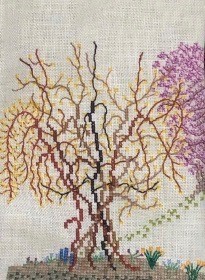
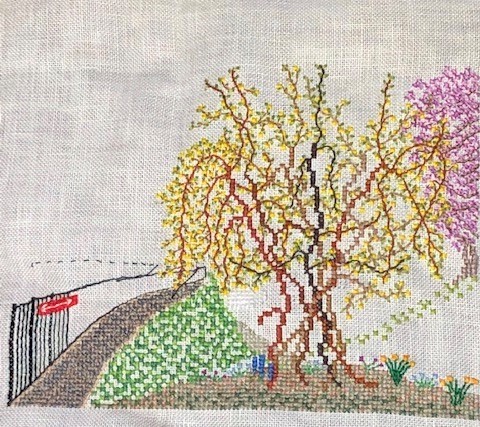

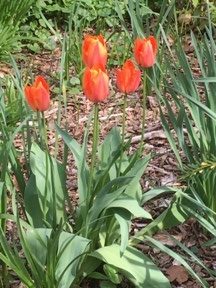

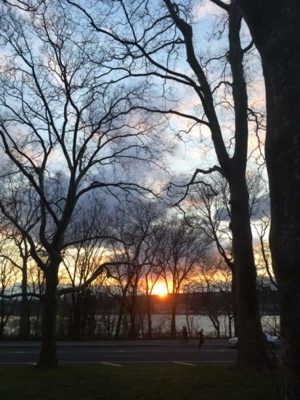
 Leader’s Desk: “A Second Bill of Rights”
Leader’s Desk: “A Second Bill of Rights” Take the 2020 Census Today!
Take the 2020 Census Today!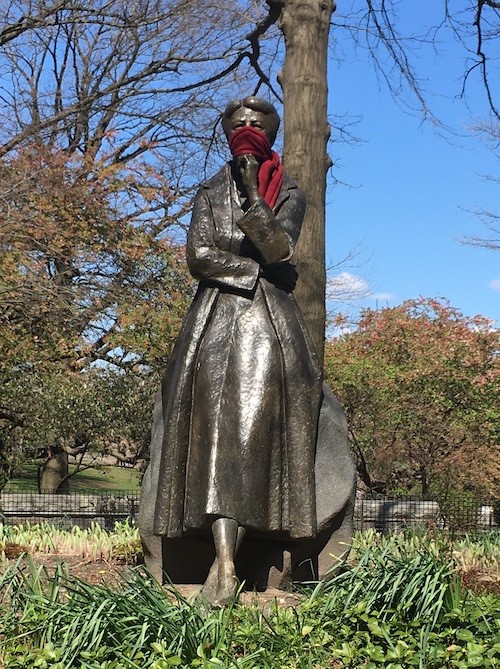
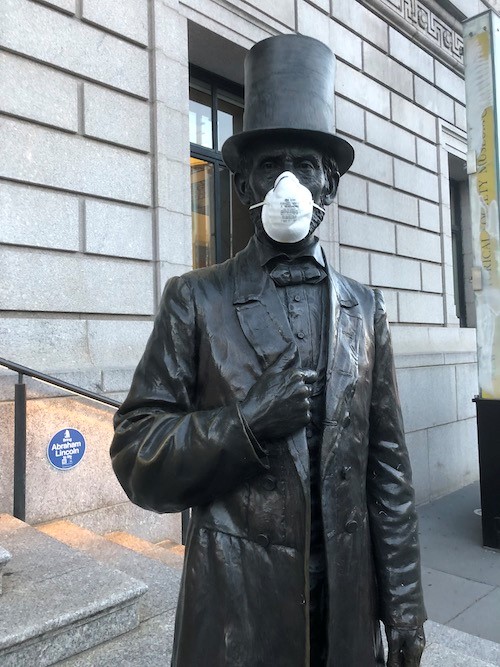
 Mother Nature’s Time Out
Mother Nature’s Time Out Young Ethical Explorers & SEEK
Young Ethical Explorers & SEEK Children’s Book Week: Read, Dream, Share
Children’s Book Week: Read, Dream, Share Our Ethical Family
Our Ethical Family